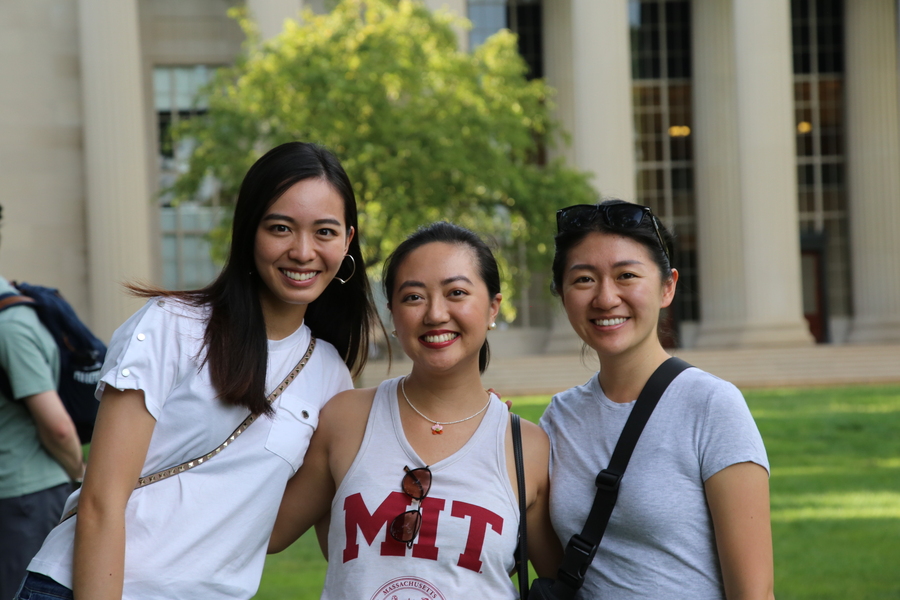MIT’s Acceptance Rate
A highly reputed private research institute, the Massachusetts Institute of Technology (MIT) provides world-class teaching and research that is required to solve problems relevant to the practical world and transform society for the better. “The mission of MIT is to advance knowledge and educate students in science, technology, and other areas of scholarship that will best serve the nation and the world in the 21st century.” The university provides a milieu of academic rigor coupled with the excitement of discovery, fostering a sense of intellectual stimulation in a diverse campus community.
Changing trends
If we analyze the admission figures of MIT, we can clearly see a significant decline compared to previous years. For the class of 2029, 721 students were offered early admission to MIT out of 12,053 early applications resulting in an acceptance rate of approximately 6%. Classes of 2026, 2027, and 2028, the acceptance rate stood at 3.9%, 4.8%, and 4.5%, respectively. MIT announced that for the 2023-24 admission cycle, it received 28,232 applications, which is a 5% increase from the previous year. Only 1,275 were admitted. It is important to note that the Regular Action acceptance rate was 3.92%, which is a slight increase from the previous year but is still very low. As per past data, between 10-35 students from the waitlist are offered admission. This is because MIT has a high yield rate, which means that around 85% of admitted students joined the Class of 2028.
Geographical Diversity
In 2023–2024, MIT students come from all 50 states, the District of Columbia, four territories, and 136 foreign countries. Women accounted for 49% of undergraduates (2,231) and 40% of graduate students (2,969). In addition, 11% of international students from 59 countries were admitted as compared to Yale University acceptance rate.
Standardized testing
MIT has reinstated standardized testing. They require all first-year applicants to submit scores on either the ACT or SAT. They maintain that these scores are not the only determinants for admission. However, looking at the admission statistics, it is highly important to aim for a high score that puts you at the top of the application pool. Ideally, for your best shot of being considered for admission, you must aim for a high score. With a 1570 SAT or a 36 ACT, you can be part of the 75th percentile.
Furthermore, MIT also values students with a holistic profile who can demonstrate their preparedness for the challenge that MIT has to offer. This reflects the university’s commitment to have a broader understanding of student potential beyond standardized testing.
Read More: Understanding Princeton’s Acceptance Rate
A diverse student body
In 2023–2024, MIT students come from all 50 states, the District of Columbia, four territories, and 136 foreign countries. Women accounted for 49% of undergraduates (2,231) and 40% of graduate students (2,969). Fifty-eight percent of undergraduates (2,650) and 22% of graduate students (1,617) self-identified as members of one or more US minority groups. Of MIT’s 1,102 incoming first-year students, around 16% said they are Black, Hispanic, Native American, Pacific Islander, or identify with more than one of those groups. However, in the past few years, those groups made up about 25% of the top-ranked college’s incoming first-year undergraduates. Enrollment Statistics: MIT Facts
Increased competitiveness
There is no doubt that admission to MIT is highly competitive, which makes it exceedingly challenging for applicants to predict their chances. Every MIT admissions officer will agree that grades and scores are important in their application process, as these are indicators of students’ academic prowess that match the institute’s academic rigor. Intensity, curiosity, and excitement are the buzzwords that MIT looks for in students that can be exhibited through a diverse range of activities besides academics. You will find a sense of unconventional creativity among the students of MIT. As a result, MIT admits students who can make significant contributions to the community. This highlights the exceptional caliber of students who succeed in gaining admission. What we look for | MIT Admissions
Working with study abroad consultants, overseas education consultants, or, as more commonly known, college counselors, can help you plan and make those high school years count. We can help you with your college application process. Ivy Central offers exceptional focus to help you prepare for college admissions throughout the high school years. Start today!
Updated on 14/01/2025










